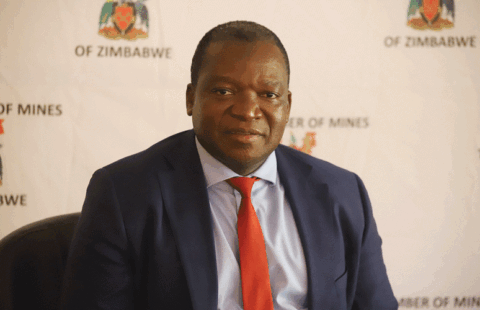Govt intensify push for minerals beneficiation
Government is intensifying its push for mineral beneficiation and value addition across all minerals to boost the value of exports, create jobs and shield the economy from volatility of commodity prices, Business Times can report.
The development was revealed by the Finance and Economic Development Minister, Mthuli Ncube.
In the first half of this year, Zimbabwe’s merchandise exports fell by 8.2% to US$3.1942bn from US$3.479bn in the prior comparable period.
The largest component of merchandise exports, minerals, saw a 12.5% decline to US$2.5837bn in the reviewed period from US$2.899 bn in the first half of 2022.
“Given the country’s high dependency on the export of primary commodities, the recent softening of international prices poses a risk to growth of export earnings. A one percent fall in commodity prices, causes a 0.69% fall in the growth of the mining sector,” Ncube said in his 2024 Budget Strategy Paper released two weeks ago.
He added: “Similarly, a fall in commodity price by 10% may swing the current account surplus into a deficit, affecting fiscal revenue inflows, particularly royalties and corporate income taxes from mining. To mitigate the risks, the country is intensifying value addition and beneficiation initiatives in order to increase the value of exports, create jobs and insulate the economy against volatility of commodity prices,” he said.
The achievement of the US$12bn mining target this year depends heavily on mineral beneficiation and value addition.
Following the anticipated softening of the commodity prices, Ncube anticipates a further decrease in mining export receipts.
“Commodity prices are expected to decline during 2023 in the face of slowing demand globally, albeit prices will remain elevated well above their pre-pandemic (2015-2019) average. During 2024, prices are projected to tapper to pre-pandemic levels and remain relatively stable. 30. Both energy and non-energy prices are projected to decline in 2023 and 2024, in the face of uncertainty both in supply and demand outlook, as precious minerals are expected to continue on the positive path in 2023 before tapering in 2024,” Ncube said.
He claimed that due to expected sharp declines in the prices of zinc and tin, metal prices are predicted to fall by 8.9% and 3.4%, respectively, in 2023 and 2024.
In contrast, precious mineral prices are expected to continue on the positive trajectory, and projected to grow by 5.5% in 2023, as demand for gold for safe haven rises amidst elevated uncertainty with respect to future growth prospects, ongoing concerns about global inflation, as well as financial stress witnessed in the first quarter.
This optimistic forecast is supported by the anticipated strong supply growth over the anticipated time frame. However, prices for international precious mineral commodities are anticipated to taper off by 7.2% in 2024 as they return to their pre-pandemic levels.
Mineral beneficiation, according to Pfungwa Kunaka, permanent secretary for Mines and Mining Development, is essential for the nation to maintain its competitiveness in the global mining industry.
He said there is a need to prioritise mineral beneficiation and value addition in the mining industry with investments in new technologies research and development so that we ensure we remain competitive and continue to add value to our mineral resources.
“The mining industry is one of the major economic mainstays to anchor the country towards an upper middle-income economy by 2030,” he said.


